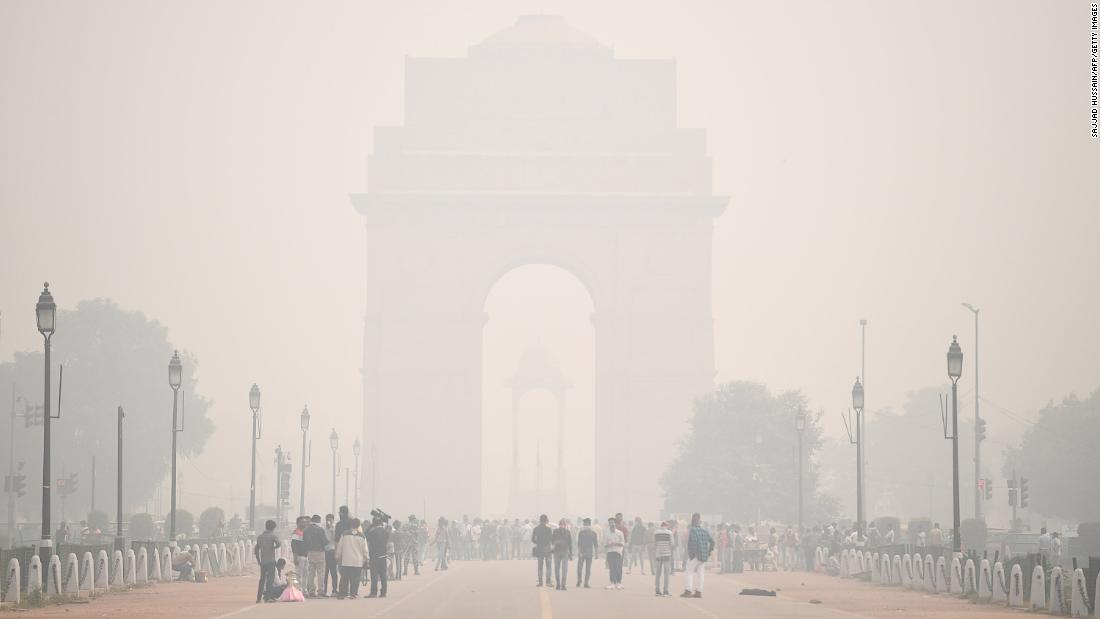In a study published in the journal Environmental Research on Tuesday, researchers from Harvard University, in collaboration with the University of Birmingham, the University of Leicester and University College London, found that exposure to particulate matter from fossil fuel emissions accounted for 18% of total global deaths — almost one in five — in 2018.
The figure is much higher than previously thought. As recently as in 2019, scientists were estimating that 4.2 million people die each year from outdoor airborne particulate matter pollution, a figure that included people who die because of pollution from dust and smoke from wildfires and agricultural fires.
The new study shows that in 2018, estimated 8.7 million deaths were linked to fossil fuel emissions alone.
Eloise Marais, an associate professor in physical geography at UCL and a co-author of the study, said the research adds to the “mounting evidence” that air pollution from fossil fuels is detrimental to global health.
“We can’t in good conscience continue to rely on fossil fuels, when we know that there are such severe effects on health and viable, cleaner alternatives,” she said in a statement.
The scientists used a global 3D model of atmospheric chemistry developed at Harvard to get a better picture of pollution at a more local level.
Traditionally, satellite and surface observations were used to estimate the average global annual concentrations of PM2.5 particles in the air. By using the 3D model, the scientists were able to divide the globe into a grid with boxes as small as 50 kilometers by 60 kilometers (31 miles by 37 miles) and look at pollution levels in each box individually.
This allowed them to assess the impact of the pollution in places where people live and to distinguish between different sources of pollution.
They found that China, India, parts of the eastern US, Europe and Southeast Asia were the worst impacted. According to the data, as many as 30.7% of deaths in Eastern Asia, 16.8% in Europe and 13.1% in the US can be attributed to fossil fuel pollution.
To model the pollution, the researchers used real emissions and meteorology data, mostly from 2012. The year was picked to eliminate the influence of the El Niño phenomenon, which can worsen or improve pollution depending on the region. They then updated the data to reflect a 44% fall in fossil fuel pollution in China between 2012 and 2018.
The researchers estimate that China’s move to cut its fossil fuels emissions saved 2.4 million lives worldwide, including 1.5 million in China.
Millions of lives could be saved by reducing greenhouse gas emissions
The authors found that policies in line with the goals of the Paris Agreement could save 6.4 million lives by improving diets, 1.6 million lives due to cleaner air, and 2.1 million lives due to increased exercise. However, because people would experience crossover benefits from cutting air pollution, eating healthier and breathing cleaner air, the authors say it is difficult to estimate the total number of lives that would be saved by meeting the Paris goals.
The study looked at Brazil, China, Germany, India, Indonesia, Nigeria, South Africa, the UK and the US. Together, those countries make up 50% of the world’s population, but produce 70% of its greenhouse gas emissions.
“The message is stark. Not only does delivering on Paris prevent millions dying prematurely each year, the quality of life for millions more will be improved through better health. We have an opportunity now to place health in the forefront of climate change policies to save even more lives,” said lead author Ian Hamilton, executive director of The Lancet Countdown on Health and Climate Change.



